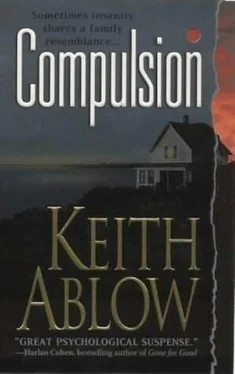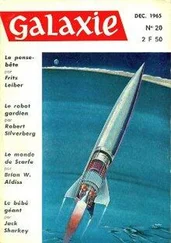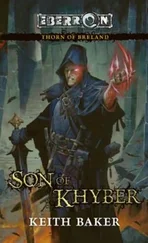"Will do," I said.
"The lobby, in say forty-five minutes, then?"
"Forty-five," I said.
It took until 10:00 p.m. to get the relevant players into an interview room at Boston Police headquarters on Causeway Street: Detective Terry McCarthy from the Boston force; State Police Captain O'Donnell; District Attorney Tom Harrigan; and Carl Rossetti, now officially chosen by Julia to represent her, Garret, and Billy.
Two hours earlier, Rossetti had worked his magic with Judge Barton at Suffolk Superior, getting us an emergency court order to take Garret's statement.
Darwin Bishop's assault on Julia had dissolved most of the animosity between the players in the room. Bishop was beyond rescue, and his henchmen knew it. The papers he had demanded that Julia sign at MGH turned out to be forms closing out two bank accounts in the twins' names, each of which held $250,000. He also happened to have been carrying two one-way tickets to Athens, Greece, a nice stopover on your way to disappearing forever. The tickets had been issued in his name and Claire Buckley's.
We chose Terry McCarthy to conduct the interview. McCarthy, a soft-spoken man of forty-two years who looks about fifty-five, is a former Boston College hockey player. He leans into every step with his right shoulder, half-lifting, half-sliding his feet, as if still on the ice. And, despite his smooth voice, he can still get this look in his eye that makes you think he's about to crush you against the boards or drop gloves and pummel you. That dichotomy may be the reason he can coax the truth from just about anyone.
McCarthy sat catty-corner to Garret at the conference table, the rest of us taking seats a respectful distance away. He turned on a tape recorder.
"Why don't we start with your name?" McCarthy said to Garret.
"That's easy," he said. "Garret Bishop."
"Your date of birth?"
"October 13, 1984."
"And today's date?" McCarthy asked.
"June 29, 2002."
"And, Garret, are you giving this statement voluntarily? Of your own free will?"
"Yes," Garret said.
"No one here has coerced you in any way-offered you anything?"
"No, sir," Garret said, with a hint of a smile. "I wish they would."
Captain O'Donnell chuckled.
Garret laughed a nervous laugh.
McCarthy got that look in his eye.
"Just answer his questions," Rossetti told Garret. "No jokes."
"Let me ask you again," McCarthy said, leaning into the table, his voice especially kind. "Has anyone offered you anything for what you are about to say?"
"No," Garret repeated.
"Very well. Let's get started, then. Tell us what you saw on the night of June 21, 2002."
Garret stared at McCarthy, seemed about to answer, then slumped a little in his seat and looked down at the table. Several seconds passed.
"Garret?" McCarthy prompted him.
No response.
I glanced at Anderson, who looked just as worried as I was that Garret was losing his nerve.
"Garret, if you don't want…" McCarthy started.
"Tell me again how I know I'll be safe," Garret said, still staring at the table.
"Okay, let's go over that," McCarthy said. "A state trooper is being assigned to you as a bodyguard. That person will be with you for at least six months, much longer if anyone you implicate in a crime is ultimately brought to trial. It's important you understand, though, as we've informed your mother and your lawyer: There are no guarantees. Nothing we can do will take away every bit of risk."
Garret pursed his lips, apparently pondering what he had just heard.
All I could do was sit there and wait. I scanned the faces in the room. Tom Harrigan rolled his eyes and shrugged.
"Are you reconsidering, Garret?" McCarthy said. "You shouldn't feel pressured to say anything." His tone suggested otherwise. "We can call it a night right now, if you want. Everyone will go home, like this never happened."
Garret looked up at him, glanced at me. A few more seconds of silence, then: "I was reading in my room. It was about eleven-thirty or so."
I felt my whole body relax. I sensed victory. I looked at Anderson. His fist was clenched. This was the moment we had worked for.
"I was reading and I heard something downstairs-from the basement," he went on. "It was a crash, like something had fallen."
McCarthy nodded encouragingly.
"I thought everyone else had gone to bed, so I was like, "That's weird,' you know? So I started going down to the basement." He squinted, as if visualizing the scene. "I got as far as the family room and I was walking toward the kitchen, where the basement door is. But before I got there I heard footsteps coming toward me. So I stopped. And Darwin walked into the room." Garret paused, looked directly at McCarthy. "He had a tube of plastic sealant in his hand."
Every trace of sound seemed to evaporate from the room. What Garret had said was enough to help Billy, but he wasn't finished.
"I told Darwin I had heard something in the basement," Garret continued. "He said not to worry about it, he'd knocked something over, to go back to my room."
"And what did you do?" McCarthy said.
"I went upstairs. But I had a bad feeling about the whole thing. Eerie, like. Darwin never goes down to the basement, first of all. And he seemed, like, out of it."
"Out of it," McCarthy repeated.
"Major league stressed or angry, or something," Garret said. "I couldn't tell."
"What happened next?"
"I heard him walk past my room, toward the nursery. So I waited until he'd gotten all the way down the hall, then I sneaked out of my room and followed him."
"And?" McCarthy said.
Garret closed his eyes. "I saw him take the tube of caulk and…"
"What did he do with the caulk?" McCarthy said.
"He put it in Brooke's nose. First on one side, then the other," Garret said. "Then down her throat." He opened his eyes. They were filled with tears.
It was the first time I had seen Garret cry. And for the first time, he seemed his age to me. He looked like an emotionally awkward, adolescent boy struggling to be a man, under the worst of circumstances.
"Then what happened?" McCarthy continued, unfazed.
"I went back to my room," Garret said, wiping tears off his cheeks.
"And you didn't tell anyone about this until now?" McCarthy said.
"No."
"Why not?"
"I was scared," Garret said.
"Of what?" McCarthy asked.
" Darwin."
"Why?"
"Because I've watched him beat my brother Billy almost unconscious," Garret said. "Because he's threatened more than once to kill me if I disobeyed him-let alone… turning him in."
"So why go out on a limb now?" McCarthy asked.
Garret swallowed, took a deep breath. "I saw what he did to my mother," he said, his lip starting to twitch again.
"If I had had the guts to stop him sooner, that never would have happened. I'm not going to wait until she's dead to do the right thing."
Garret left the interview room with a police escort. The plan was for him to stay the night in Boston, then head back to Nantucket.
State Police Captain O'Donnell was the first to speak. "Officer Anderson," he said, "based on what I just heard, along with the fingerprint evidence you obtained and the other circumstantial evidence in this case, I plan to charge Darwin Bishop with the first-degree murder of his daughter Brooke and the attempted murder of his daughter Tess." He glanced at Tom Harrigan. "I would presume the District Attorney's office will ask the grand jury to indict Mr. Bishop for those offenses, along with the attempted murder of his wife Julia earlier today."
"We'll be in front of the grand jury as soon as they can convene one," Harrigan said.
"I hope we can arrange Billy Bishop's release in the same time frame," Carl Rossetti said.
Читать дальше












